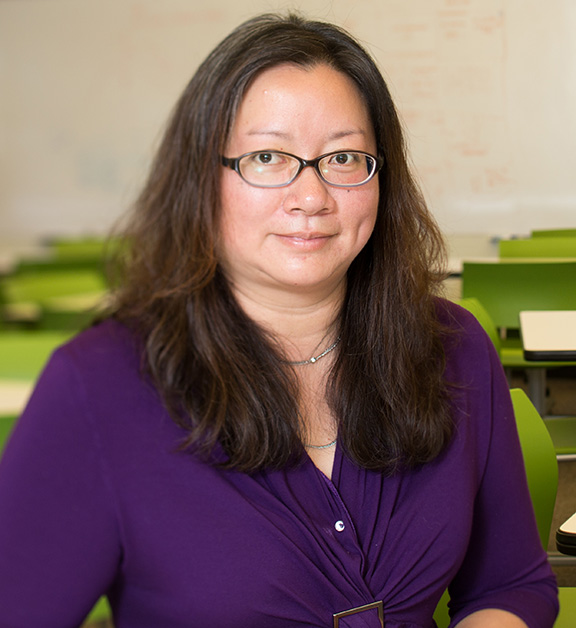Leah Pistorius
July 13, 2020

Coordinating Remote Work for Social Distancing to Stem the Spread of COVID-19

Charlotte P. Lee
In the wake of COVID-19 outbreaks, organizations large and small made a sudden shift to remote working to support social distancing.
Dr. Charlotte P. Lee, associate professor in the Department of Human Centered Design & Engineering, has received a rapid-response research (RAPID) grant from the National Science Foundation to study how organizations and individuals are adapting to remote work, and to develop guidance about how to support such shifts in the future.
Supporting remote work is urgently needed to protect public health and welfare, support our economy, and further science and engineering research. While video, audio, and other Computer Supported Cooperative Work (CSCW) technologies are important, these technologies are just a small part of the solution. “Research in HCI and its subdiscipline of CSCW has shown time and again that it is not enough to insert technology into a situation,” Lee described. “People and organizations need technologies that fit or can be adapted to actual work practices, and organizations must be able to quickly and dynamically adapt those practices to changing situations—these adaptations require complex n-way coordination.”
The switch to remote work requires new ways of working. Some of these new ways involve using new technologies, some involve using old technologies in new ways, some involve working around existing technology, and some may not involve technology at all. Some solutions require coordinating people who hadn’t worked together before. This research will explore different ways that people are facilitating the switch to remote working and supporting new work paradigms for weeks and months.
Lee and students in her Computer Supported Collaboration Lab are centering the study on individuals, groups, networks, and departments who are within, or work with, the University of Washington, which was the first university in the United States to move to online classes following the emergence of COVID-19.
The researchers are collecting and analyzing organizational strategies, coordination, on the fly decision-making, techniques, emergent processes, and best practices for enabling and supporting remote working.
Throughout the one-year study, Lee hopes to share guidance about how to prepare for, enact, adjust to, and coordinate remote work. This research will discover which practices make for more resilient work groups and organizations.
This project is one of several in the Department to receive a rapid-response research (RAPID) grant from the NSF, which has called for immediate proposals that have potential to address the COVID-19 pandemic. Review other projects involving HCDE researchers, here.